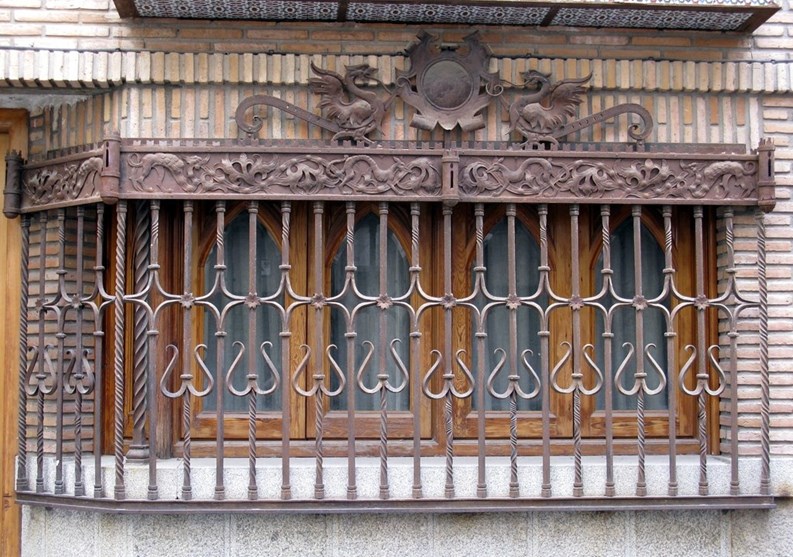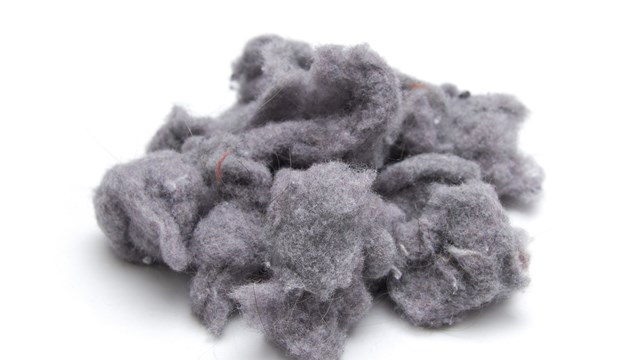Flanked by two major cities, New Jersey has just about every type of housing stock there is. Many suburban homeowners have dreams of that legendary white picket fence, but those who live in urban areas can also definitely appreciate the importance of demarcating their property. Many condos and co-ops in New Jersey have fencing installed around their property, whether for security reasons or just as a nice aesthetic touch to make the building community stand out.
Not Just for Looks
The type of community you live in and its surroundings determine what kind of fencing you have. In co-op and condo buildings in Jersey City and Newark, fencing doesn’t just mean privacy, it’s also a form of security. That often means metal—predominantly iron, but also steel, aluminum, and other alloys.
“There’s no one-option-fits-all approach; it’s just a matter of what people want from an enclosure,” says Michael Costanza, president of Olympic Fence in New York City. “All buildings have their own opinion—it could be based on the architectural design, what’s easiest to maintain, or just the price.”
In most cases, particularly in suburban New Jersey, condos and HOAs opt for fencing that provides the most privacy. “Usually the fences go out about from the back of the building maybe 30 feet, 20 feet, and then each unit's different in size obviously,” says Brian Hefferon, vice president at Master Wire Manufacturing in Folsom. “You put six-foot high fences between the units, so that it gives you privacy from your neighbors. And then most of the time, the fence that they put out facing away from your building, if you're looking out the back of your condo out to the back property, they usually drop it down to four feet high across there,” he says.
What’s Available?
Thanks to new technologies, there are more types of fencing available on the market than ever. While new types of fencing that tends to incorporate vinyl materials are becoming extremely popular, some of the more traditional mainstays are still prevalent.
Chain-link, for instance, is still one of the most cost-effective and durable materials around. Also referred to as wire netting, chain-wire fence, or diamond-mesh fence, this type of fence is recognized by its characteristic diamond shape created by the wire being hooked together in a zigzag fashion. Chain link is very good for security and requires very little maintenance—though one major drawback is that it doesn’t offer the aesthetics of other, more ornate options. For this reason, chain-link fences aren’t too popular among the condo boards for street-side use, but they are sometimes used in other capacities in less visible parts of the property, such as rear courtyards or alley passages.
Since New Jersey covers huge suburban regions, vinyl fencing is probably now the most ubiquitous in the state. Vinyl has quickly gained popularity over the years because of decreasing prices and more aesthetically-pleasing options. This type of fence is made of synthetic materials and has proven to be capable of standing up to the tough winters that New Jerseyans have faced over the last few years.
“About 60% of our business is vinyl. People like vinyl because you do it once and you never have to do it again,” says Brian Moore, a sales associate at Carl’s Fencing in Toms River. Vinyl may be the most expensive, but since it requires almost no maintenance whatsoever, it ends up being the most popular—and likely the cheapest—in the long run.
“Now they're making vinyl fencing that looks just like wood fencing,” says Hefferon. “It's got the colors, the wood grain, and it looks just like a wood fence. It's not the plain white or tan vinyl that we've seen since the beginning back in the mid '90s. Everything's evolved now.”
Heavy Metals
That said, vinyl is not necessarily the default choice for everyone. If you’re looking for durability and strong security, steel and iron fences are tough to beat. Because of its susceptibility to rust, iron fencing is somewhat less durable than steel, and requires more frequent maintenance and repairs. On the other hand, iron is more resistant to shocks and vibrations, and breaks down more gradually than steel. In areas with high traffic that may result in your fence being struck by a vehicle or other object, iron should be your go-to choice. When iron is met with force, it will bend, but ultimately stand. Steel does not bend and will just break in two—though it requires much more force to cause any damage. But both types of fence can last a lifetime if properly cleaned once a year.
“If you're right by the water, vinyl is probably your best option,” says Moore, “but if you're also doing 10 stories worth of condos, vinyl may not be the best option because it's not the sturdiest compared to a metal. A lot of people like the security and the feel of the metal, where vinyl doesn't have that feel of security as far as being up 10 stories.”
Even though it’s not as strong as iron or steel, an aluminum fencing option is probably best when it comes to handling bad weather and the elements. As noted above, aluminum fencing requires next to nothing when it comes to maintenance. It's also very light, making it extremely easy to install in areas that you may have difficulty installing iron or steel fencing. That said, communities close to the coast have to make special considerations. “I would say aluminum is fine within at least five miles away from the ocean, you won't have any corrosion, but I would say within five miles of the ocean, you can get some corrosion with the aluminum,” says Moore.
Out of the Woods
Even though it’s one of the most popular fencing materials in the country, wooden fencing is quickly losing its dominance thanks to vinyl. Wood fences are the real thing though, and they can be the most beautiful for a condo but also the most difficult to maintain. Common wood fences are made from cypress, Western red cedar, and treated pine. The look of wood is still the standard, and newer products are coming out to imitate wood even more accurately. One of those, says Moore, is called composite fencing.
“It looks just like wood, and it's a solid board, it's not hollow in the middle like vinyl. It's made out of vinyl, but the boards are an actual, let's say, half-inch thick solid board with wood grain and they make it in several colors. And that's the only other product that I see that is coming out today that's an alternative to vinyl, where you're getting a beautiful-looking fence that looks just like wood, but it's going to last a lifetime,” says Moore.
Maintenance Matters
Walk around the streets of nearly any neighborhood, and there's likely to be at least one property whose fences and gates that look run-down or rusty. For the most part, this damage could have been avoided with some care and foresight. A savvy condo or co-op board will have a plan in place to keep their fences looking sharp at all times.
For metal fences, one simple solution for maintenance is to wire brush any rust off of the iron surface, and add a coat of black paint. Typically, these fences can handle layer upon layer of paint as the years go by.
The majority of vinyl fences can be cleaned very easily by just spraying the fence down with a water hose. Tougher stains may require some strong elbow grease with soap and water—or a good blast with a power washer—but it’s something that doesn’t need to be done too often.
Wood fences can suffer from mold, mildew and discoloration. Wood fences should be cleaned at least twice a year, and should be treated with an outdoor wood sealer that includes a water repellant and ultraviolet stabilizer to prevent sun damage. With all fences, the pros say that the thing that should be monitored most for wear and tear are the posts and gates, since they are the only parts that move. Even with that, however, there isn't much of a need to walk the fence line on a regular basis.
As a rule, once the fencing is properly installed, the fencing company's role is over—they don’t usually offer any ongoing maintenance programs after installation, although a warranty on labor is standard and many of the products are guaranteed by the manufacturer as well. This makes it even more important for building communities to properly inspect and maintain their fencing as the seasons change. But that varies by material as well. “With the vinyl fencing today, you get warranties ranging from 20 years to a lifetime depending on what color you go with. So that's the big advantage of vinyl. You never have to stain it or do anything to it. It maintains its color and so on and so forth,” says Hefferon.
Up on the Roof
Fences in New Jersey, particularly if you’re close to New York or Philadelphia, aren’t limited to just what’s around the front and back of the building. Many buildings have fences installed on their roofs and some condos have them in areas where they may have a pool.
Costanza says that oftentimes fences are added to roofs for protection—especially if the roof is home to a playground, garden or other rooftop attraction. In these cases, his firm usually employs a chain-link fence, or sometimes a PVC vinyl option for more privacy.
With a pool area, the fence of choice is usually a gated iron or steel fence, something that is strong and requires little effort to maintain.
Whether a building has a fence or not may not seem like that big a deal at first, but when you consider the security it can provide, the privacy it offers and the beauty that certain fences can add, fencing is becoming an amenity that is more important than ever to today’s unit owners.
Keith Loria is a freelance writer and frequent contributor to The New Jersey Cooperator. Editorial Assistant Tom Lisi contributed to this article.







Leave a Comment